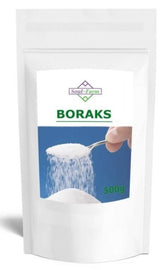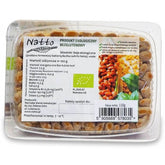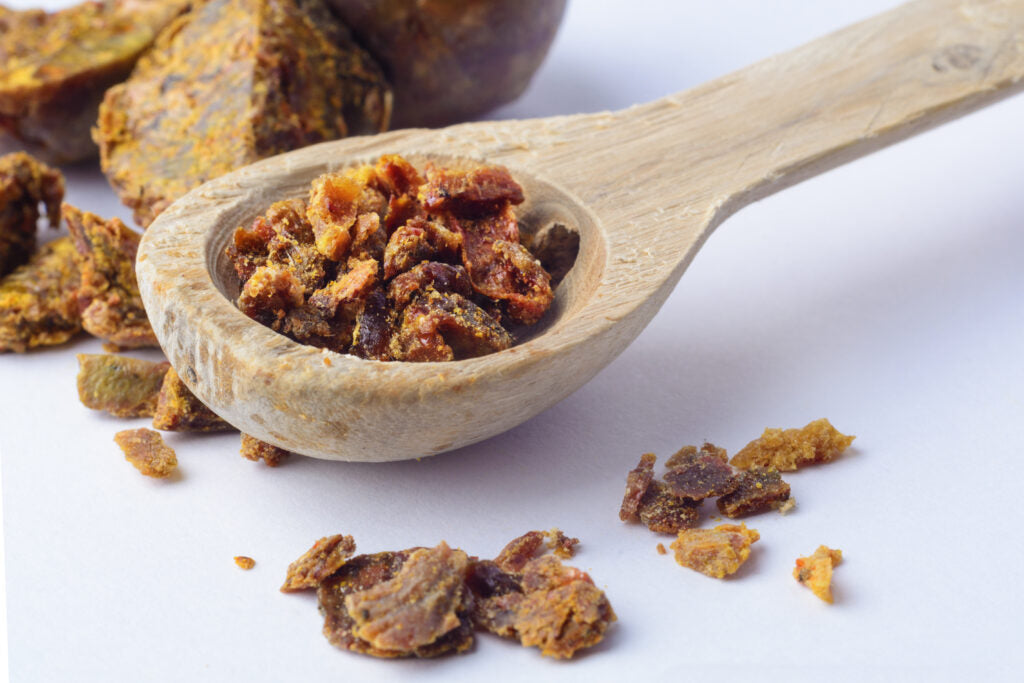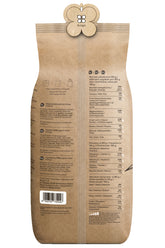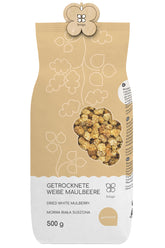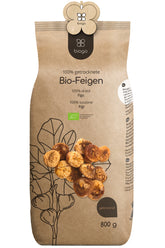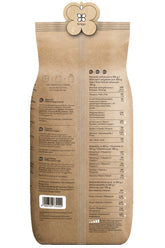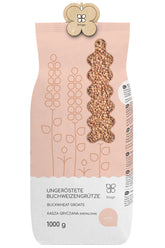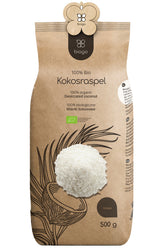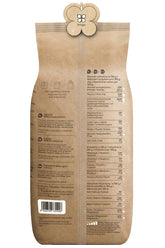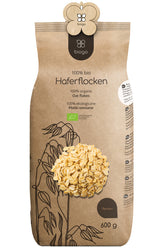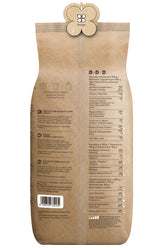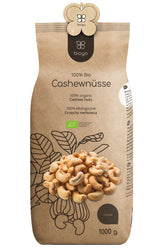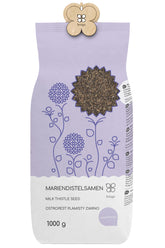Properties and application of propolis ointment
Contents:
- What is propolis?
- Propolis ointment – composition and properties
- Application of propolis ointment
- Are there any contraindications to the use of propolis ointment?
The beneficial effects of propolis on our body have been widely known since ancient times. In the past, it was primarily used to disinfect wounds and accelerate the healing process. This unusual and highly valued ingredient produced by bees also has a wide range of applications today. One of the most popular uses for propolis is as an ointment. This can effectively treat various ailments such as burns, acne, mouth ulcers, mycoses, and hemorrhoids. Let's take a look at what it is and when it's worth using propolis ointment .
What is propolis?
Propolis is a substance used by bees to seal and strengthen the structure of the hive. It is therefore also called bee glue. It has antiviral and antifungal properties, making it a natural bactericidal agent. Propolis' composition includes, among other ingredients: bee secretion, resin, and small traces of pollen. Due to the varying proportions of these ingredients, propolis can take on different shades of color, such as orange, yellow, yellow-brown, brick red, greenish-brown, and even black.
Propolis ointment – composition and properties
Propolis ointment is a composition of natural ingredients, primarily propolis with a content of 10 to 20% and petrolatum. The addition of pharmaceutical petrolatum prevents the product from drying out and also gives it a pleasant, creamy consistency and moisturizing properties. The formula of propolis ointment contains a rich set of over 300 active ingredients, the most important of which are:
- Vitamin A – improves skin elasticity and smoothness, brightens, accelerates regeneration,
- B vitamins – moisturize, smooth, make the skin soft and radiant,
- Vitamin C – a natural antioxidant, slows down the aging process, evens out skin tone, has antibacterial properties, regenerates and strengthens,
- Vitamin D – makes it elastic, accelerates the healing of irritations, protects against the harmful effects of external factors,
- Vitamin E – moisturizes, protects against UV radiation, brightens and supports regeneration.
- Flavonoids – inhibit the development of free radicals, support tissue regeneration and soften the epidermis,
- Tannins – have anti-inflammatory and antibacterial properties, relieve irritation and inflammation, Coumarin – soften and smooth the skin, have anti-inflammatory and antifungal properties, eliminate swelling, support the healing process of scars,
- Benzoic acid – fights microorganisms, protects against infections, strengthens,
- Phytosterols – strengthen and tighten the skin, delay the formation of wrinkles, protect against irritation,
- Calcium – accelerates wound healing, prevents inflammation and allergies,
- Silicon – soothes irritations, regenerates, strengthens and makes the skin elastic,
- Zinc – improves skin tone, strengthens the body, supports the immune system
- Enzymes – exfoliate and brighten, smooth the skin, and support regeneration. Combat acne,
- Iron – helps slow down the aging process,
Application of propolis ointment
Propolis is an extremely versatile natural product whose uses have been known to mankind for centuries. It can be used as a base for the preparation of various medicinal preparations, such as tinctures, sore throat tablets , creams , ointments, and drops. The flavor of propolis combines herbal, spicy, and slightly citrus notes. After consumption, it leaves a slightly burning aftertaste. One of the most popular products containing propolis is propolis ointment, which, thanks to its unique antibacterial and antiviral properties, has proven extremely effective in treating a wide variety of skin problems.
Propolis ointment has also been shown to be helpful in treating mycoses and canker sores or thrush that occur in the oral cavity. It is often chosen by people struggling with varicose veins (including hemorrhoids). The ointment accelerates tissue regeneration, relieves pain, soothes irritation, and moisturizes. Furthermore, propolis ointment is useful in combating skin imperfections, including combating acne and accelerating the regeneration process of scars and slow-healing wounds. It can be used to combat cellulite or stretch marks, as it supports cell renewal and has a positive effect on the skin's appearance.
Are there any contraindications to the use of propolis ointment?
The use of propolis is not recommended for people suffering from psoriasis or atopic dermatitis. Furthermore, as a natural product, propolis ointment can cause allergic reactions in some people. People who are allergic to wasp and bee stings are particularly at risk. An allergic reaction can also occur in people who are hypersensitive to essential oils (e.g., turpentine). If in doubt, it is recommended to conduct an allergy test before using propolis ointment. To do this, apply a small amount of the product to the inside of your wrist and wait 15–20 minutes.
THE PUBLISHER'S CHOICE
Almonds 1 kg BIOGO
- €11,69
€13,75- €11,69
- Unit price
- / per
Walnuts 800 g BIOGO
- €8,65
€10,18- €8,65
- Unit price
- / per
Dried organic mango 400 g BIOGO
- €10,99
- €10,99
- Unit price
- / per
Dried White Mulberries 500 g ORGANIC
- €5,84
€6,87- €5,84
- Unit price
- / per
Dried organic figs 800 g BIOGO
- €30,12
- €30,12
- Unit price
- / per
Unpeeled buckwheat groats 1 kg BIOGO
- €2,81
€3,31- €2,81
- Unit price
- / per
Organic coconut flakes 500 g BIOGO
- €10,07
- €10,07
- Unit price
- / per
Organic oat flakes 600 g BIOGO
- €3,77
- €3,77
- Unit price
- / per
Organic cashew nuts 1 kg BIOGO
- €19,99
- €19,99
- Unit price
- / per
Milk thistle seeds 1 kg BIOGO
- €3,99
- €3,99
- Unit price
- / per






